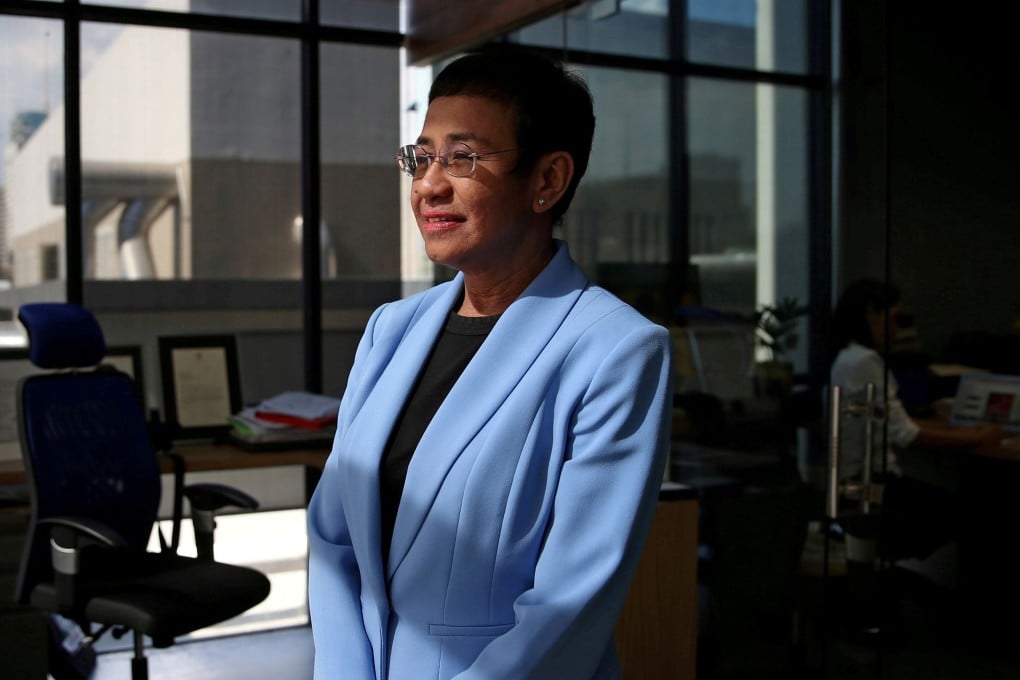Maria Ressa’s Nobel Peace Prize win: President Duterte silent as Philippine journalists rejoice
- Maria Ressa, who co-founded news website Rappler, won the 2021 Nobel Peace Prize on Friday along with Russia’s Dmitry Muratov
- Veteran journalist Ressa, the first Filipino to win a Nobel Prize, is a vocal critic of President Rodrigo Duterte

But many of the country’s journalists, who have been under relentless attack by the Duterte government for critically reporting on the extrajudicial killings in his war on drugs, and lately against suspected communists, rejoiced at the accolade showered on their colleague.
“Thank you Rodrigo Duterte,” 2018 Pulitzer Prize winner Manuel Mogato tweeted.
“You really made it possible for the Philippines to be placed in the world map – Maria Ressa won the 2021 Nobel Peace Prize for journalists fighting against state repression. She won with a Russian journalist (Dmitry Muratov).”
The only Duterte official who reacted to Ressa’s win was Foreign Secretary Teodoro Locsin Jnr. “Congratulations, Maria. A win is a win,” Locsin, a former journalist, said.

03:19
Philippine journalist Maria Ressa wins 2021 Nobel Peace Prize jointly with Russia’s Dmitry Muratov